- Clone
- DCS-8C1 (See other available formats)
- Regulatory Status
- RUO
- Other Names
- Dendritic Cell-Specific Intercellular adhesion molecule 3 (ICAM-3)-Grabbing Nonintegrin
- Isotype
- Mouse IgG1, κ
- Ave. Rating
- Submit a Review
- Product Citations
- 1 publications
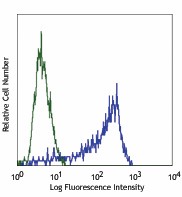
CD209, known as Dendritic Cell-Specific Intercellular adhesion molecule 3 (ICAM-3)-Grabbing Nonintegrin (DC-SIGN), is a 44 kD type II transmembrane glycoprotein and a member of the C-type lectin family. CD209 is expressed on myeloid dendritic cells, placental macrophages, liver and placental endothelial cells. CD209 binds to ICAM-3 (CD50), ICAM-2 (CD102), and Butyrophilin (BTN2A1), and mediates dendritic cell migration and T cell proliferation. Importantly, CD209 is a receptor of HIV-1 and some other viruses (such as West Nile virus, hepatitis C virus, etc), and some bacteria or parasites. It plays a critical role in capturing and internalizing those pathogens. LSP1 (leukocyte-specific protein 1) interacts with the cytoplasmic domain of CD209 and mediates transport of HIV to the proteasome.
Product DetailsProduct Details
- Verified Reactivity
- Human
- Reported Reactivity
- Pigtailed Macaque
- Antibody Type
- Monoclonal
- Host Species
- Mouse
- Immunogen
- Extracellular domain of human DC-SIGN
- Formulation
- Phosphate-buffered solution, pH 7.2, containing 0.09% sodium azide.
- Preparation
- The antibody was purified by affinity chromatography.
- Concentration
- 0.5 mg/mL
- Storage & Handling
- The antibody solution should be stored undiluted between 2°C and 8°C.
- Application
-
FC - Quality tested
- Recommended Usage
-
Each lot of this antibody is quality control tested by immunofluorescent staining with flow cytometric analysis. For flow cytometric staining, the suggested use of this reagent is ≤ 2.0 µg per million cells in 100 µl volume. It is recommended that the reagent be titrated for optimal performance for each application.
- Product Citations
-
- RRID
-
AB_2074330 (BioLegend Cat. No. 343002)
Antigen Details
- Distribution
-
Dendritic cells
- Cell Type
- Dendritic cells
- Biology Area
- Immunology, Innate Immunity
- Molecular Family
- CD Molecules
- Antigen References
-
1. Granelli-Piperno A, et al. 2005. J Immunol. 175:4265.
- Gene ID
- 30835 View all products for this Gene ID
- UniProt
- View information about CD209 on UniProt.org
Related FAQs
Other Formats
View All CD209 Reagents Request Custom Conjugation| Description | Clone | Applications |
|---|---|---|
| Purified anti-human CD209 (DC-SIGN) | DCS-8C1 | FC |
| PE anti-human CD209 (DC-SIGN) | DCS-8C1 | FC |
| APC anti-human CD209 (DC-SIGN) | DCS-8C1 | FC |
Customers Also Purchased
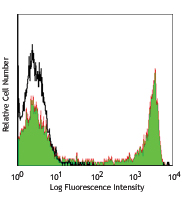
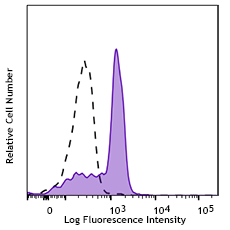
Compare Data Across All Formats
This data display is provided for general comparisons between formats.
Your actual data may vary due to variations in samples, target cells, instruments and their settings, staining conditions, and other factors.
If you need assistance with selecting the best format contact our expert technical support team.
-
Purified anti-human CD209 (DC-SIGN)
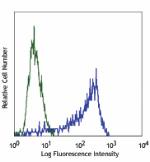
Human monocyte-derived dendritic cells stained with DCS-8C1 ... -
PE anti-human CD209 (DC-SIGN)

Human monocyte-derived dendritic cells stained with DCS-8C1 ... -
APC anti-human CD209 (DC-SIGN)








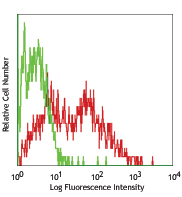
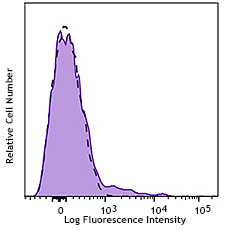






Follow Us